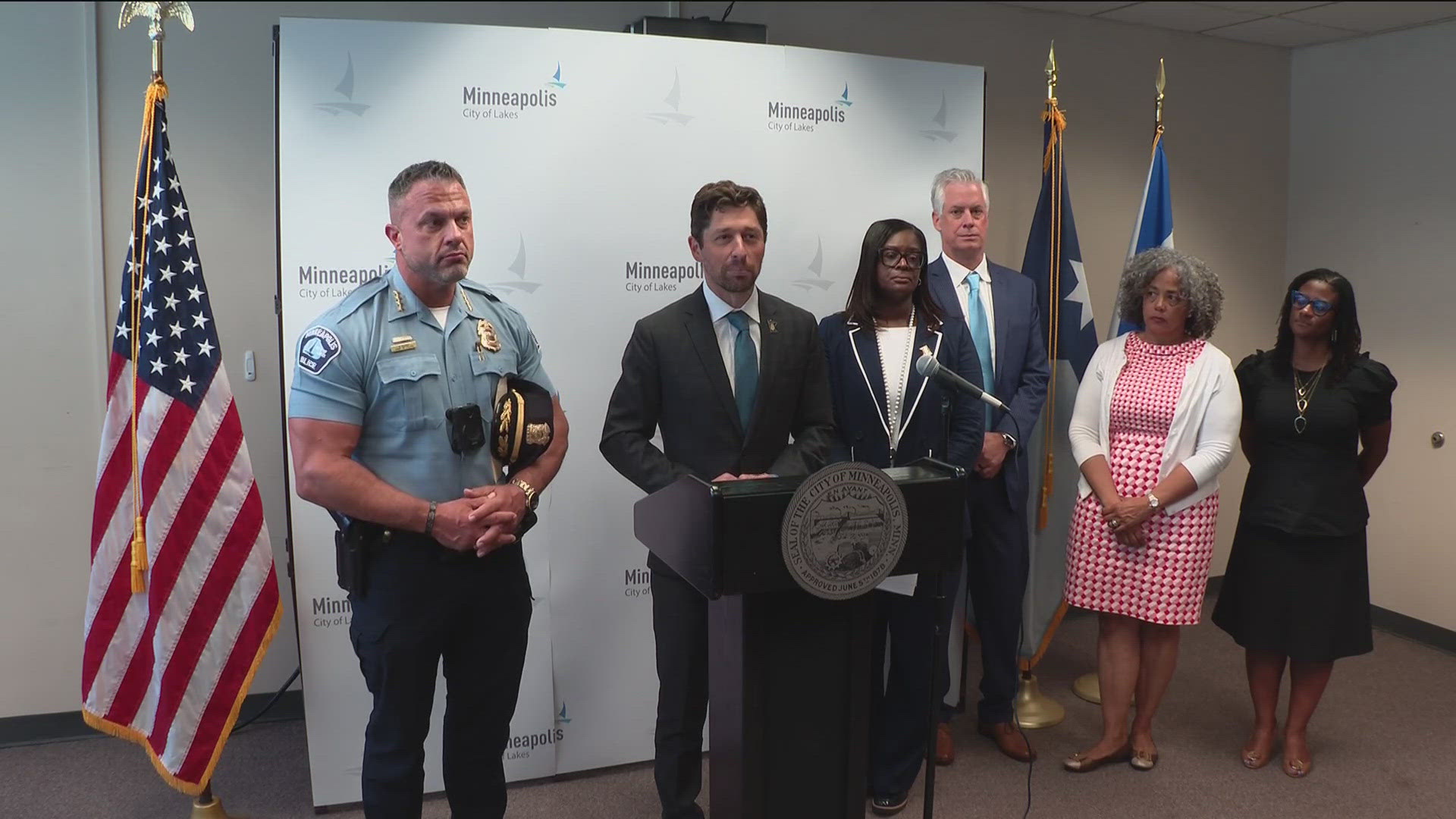MINNEAPOLIS — The Minneapolis City Council voted Thursday morning to approve a hotly-debated police collective bargaining agreement that provides significant pay hikes and gives the chief increased power in staffing and operational decisions.
After each council member took time to explain their position on the contract, members voted 8-4 in favor of passage.
The contract calls for police reforms and a nearly-22% raise in base pay across three years, applying to the period between Jan. 1, 2023, and Dec. 2025.
At a press conference following the vote, Minneapolis Police Chief Brian O'Hara said passing the new contract was essential to address the challenge of recruiting and retaining officers. O'Hara told reporters he has seen an outpouring of support for his officers at listening sessions leading up to Thursday's council vote, and insisted residents see the changes in the department and are thankful for the men and women who are working to keep them safe.
The problem, O'Hara says, is that Minneapolis officers don't recognize that growing support as they are too busy "answering call after call after call, running from one bad event to another" to feel the appreciation from residents. O'Hara believes the new labor agreement will help boost staffing numbers and ease the stress and workload his patrols are under.
"While increasing pay is certainly not the panacea to any staffing crisis anywhere... having the pay increases, having one of the best paid )departments) in the state, is absolutely necessary to retain the outstanding men and women of this agency, and to attract the very finest young men and women who are looking to serve."
Originally, the council planned to vote on the contract in June but delayed it to allow more time for more public input.
The city has publicly released the full contract. It has also outlined some of the reforms and contractual changes in a news release that include:
Zipper Clause
It is common for parties to a collective bargaining agreement to address issues that arise in the middle of the term of an agreement through one-off letters of agreement (LOAs).
- The City and Police Officers Federation of Minneapolis union (POFM) have, over many decades, entered these LOAs and there has been confusion about which ones were still in effect.
- In this agreement, the parties have re-looked at those LOAs, decided which ones should still exist, and agreed that only the ones that are actually included as part of attached to the main agreement will continue into the future.
- This means the City, the Federation, and the public can know the full scope of what has been agreed to in writing at the start of the term of the contract.
Staffing Flexibilities
In the past, the collective bargaining agreement has controlled multiple aspects of how MPD assigns work, both in terms of shifts and locations and mandated numbers of promotions.
- The new agreement will give management more discretion over job assignments and staffing ratios, so that the Chief and his leadership team can assign officers to areas of the greatest need, and make promotions based on candidate readiness, not based upon a mandated percentage.
- The City also negotiated a change to significantly reduce the period of time it takes to fill vacancies.
Civilian Investigators
Minneapolis has undertaken the work of re-imagining its community safety system, ensuring personnel are being deployed where they’re needed most.
- With fewer sworn personnel serving in MPD, the City has continuously worked to identify opportunities to assign specialized civilian staff to clerical and investigative work, and enable officers to be out on the street and present in community, and more available to address critical needs.
- Through the new agreement, the POFM has agreed that the City can make permanent hires or hire civilians to assist with investigative work.
- By “civilianizing” work that can be completed by a non-sworn employee, the Chief will be able to keep the limited complement of MPD officers focused on critical safety work.
Public Data Requests
Officers will no longer receive automatic notification of the identity of the person requesting public personnel data about them.
Leave Time Period
When there are allegations of severe misconduct, the Chief will have complete discretion to place the officer on paid investigatory leave for up to 180 days. In the past, the Chief only had complete discretion for the first 30 days.
This gives the Chief more flexibility to keep an officer off the street while focusing on the investigation.
This is a developing story. KARE 11 will provide more details as new information becomes available.

